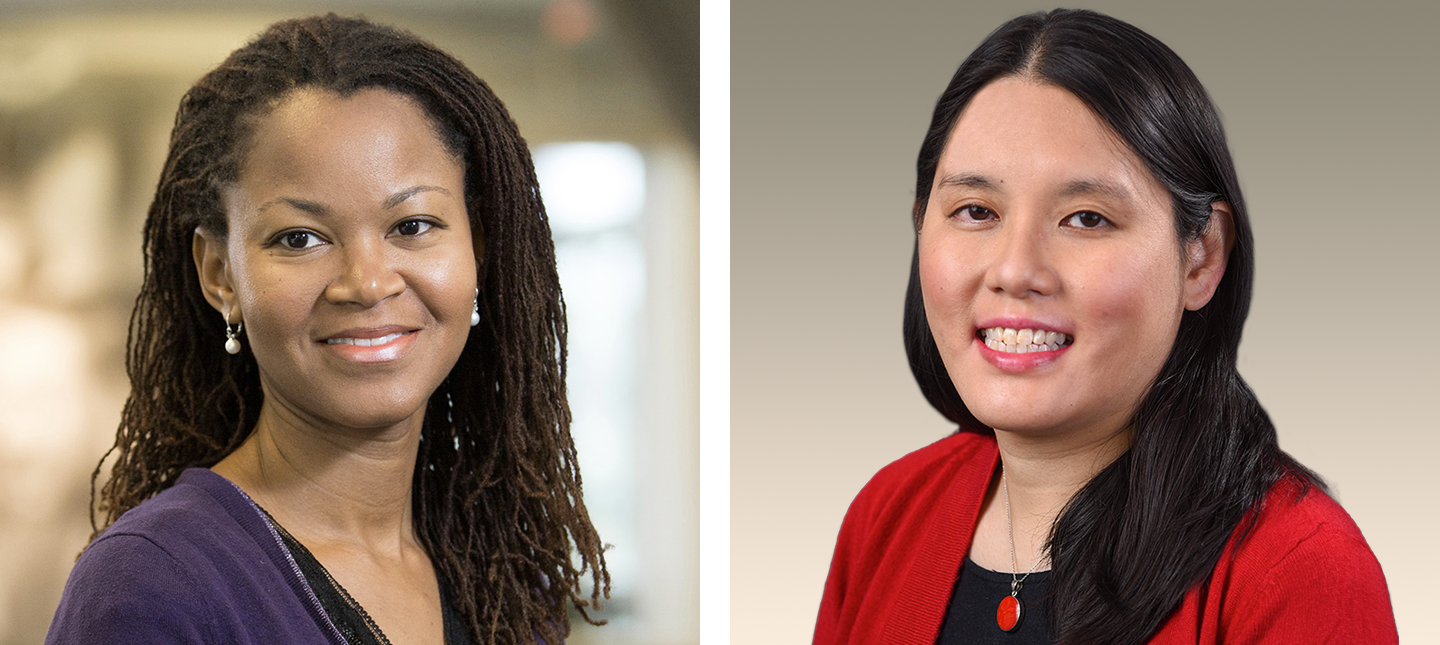Researchers propose strategies to support brain health in this community
INDIANAPOLIS – A new study examining older Black Americans’ perceptions of Alzheimer’s disease has found a lack of awareness of the devastating condition. The authors propose strategies for supporting brain health in this population.
Absence of awareness of Alzheimer’s disease may undermine Black Americans’ ability to identify potential risk of the disease and its impact on their community, said Johanne Eliacin, PhD, Regenstrief Institute, U.S. Department of Veterans Affairs and the Indiana University School of Medicine research scientist and study leader. Dr. Eliacin notes that the research team’s findings may contribute to the development of effective and culturally sensitive strategies to address racial disparities in Alzheimer’s disease.
“We asked study participants whether they agree, disagree or are unsure that Black Americans are at higher risk of developing Alzheimer’s disease compared to White Americans, and most were unsure. Yet Black Americans are at greater risk of developing Alzheimer’s disease than White Americans,” said Dr. Eliacin. “And when Black Americans are diagnosed, they often have a greater burden because of the costs of managing the illness, lack of available support for patient and caregiver and all of the challenges of navigating the healthcare system for this very complex illness. Combined with socio-cultural determinants of health, many Black Americans are really disadvantaged when it comes to dealing with Alzheimer’s disease. We still have a lot of work to do.”
“I don’t think too many [people] really think about it as much unless it hits them personally…some Black people look at it like mental illness, [it] is taboo,” said one study participant.
Another observed, “I think that there’s whispers about it…. But I don’t think it’s well-known and I don’t think it’s known as how truly dangerous it is. …the Black community doesn’t fully understand I think the implication. Not like cancer.”
A third said, “People come into our community and are clueless about who we are and what we’re all about. And have not made any effort in learning about our community, but only relying on what the media has put in front of them as this is what the African American community should look like. And, if that’s your only source about the African American community, you are extremely ignorant. Well, you need to know that you…to overcome years and years of a group of people being taken advantage of in all different ways. For instance, are you familiar with the wealth gap?…education gap?…the health gap?…social justice issues. …And if you have a problem with those things, you’re not gonna do well within an African American environment, because it’s gonna show.”
To promote a healthy brain, 72 percent of female study participants versus 59 percent of male participants reported engaging in mental activity — for example doing puzzles — and 75 percent of all participants reported practicing a healthy lifestyle.
“The Black Americans we surveyed and interviewed see themselves as playing an important role in keeping themselves healthy and supporting healthy aging. They want to do more and they want to have the tools to do so,” said Dr. Eliacin. “They are ready to play a role, but they need more education in terms of the breadth of activities that could help support a healthy brain. They also need additional support to facilitate access to resources so that they can engage in more activities for healthy brain support.
“They are eager to learn, but for messages on brain health to be well received and to have the biggest impact possible, we need to increase representation of minoritized groups in research and Black American community members have to be part of the decision-making process and the development of outreach programs.”
Based on study participants’ perceptions, the research team proposed strategies to promote brain health and to increase Alzheimer’s disease awareness among Black Americans:
- Invest in the Black community’s well-being throughout the lifespan.
- Proactively reach out to the Black community.
- Integrate information about Alzheimer’s disease and brain health into broader culturally appropriate wellness campaigns.
- Improve health, healthcare and research equity.
The study is one of the first to provide insight into the views on brain health of lower socioeconomic status Black Americans living in a Midwest metropolitan area, a population often neglected or absent from clinical trials for Alzheimer’s and other diseases. Dr. Eliacin notes that while there are many insights that can be drawn from this work that could be applicable to others, there is need for a large national study.
“Our study underscores the importance of developing culturally sensitive approaches that provide meaningful learning experiences about Alzheimer’s disease and brain health for Black Americans,” said study author Sophia Wang, M.D., of the Indiana University School of Medicine. “The self-reported differences in Black women and men participating in healthy lifestyles also highlight other sociodemographic factors, such as gender, that should be considered as well as we develop and test approaches.”
“Black Americans’ perceptions of Alzheimer’s disease, a healthy brain, and strategies for brain health promotion” is published in the peer reviewed journal PEC Innovation.
This research was supported by National Institutes of Health’s National Institute on Aging grants P30 AG10133 and P30 AG072976 to Andrew J. Saykin, PsyD. Dr. Eliacin received support for this work from a Veterans Health Administration Health Services Research and Development Career Development Award [16-153], and an Academy of Communication in Health Putnam Scholar Fellowship.
Authors and affiliations:
Johanne Eliacina,b,c,d,e, Angelina Polsinellie,j, Kenzie A. Cameronf, Andrew J. Sayking,h,i, Sophia Wange,g.
aNational Center for PTSD, Boston VA Healthcare System, 150 South Huntington Street, Boston, MA 02130, USA
bVA HSR&D Center for Health Information and Communication, Richard L. Roudebush VA Medical Center, 1481 West 10th Street, Indianapolis, IN 46202, USA
cRegenstrief Institute, 1101 West 10th Street, Indianapolis, IN 46202, USA
dDepartment of General Internal Medicine and Geriatrics, Indiana University School of Medicine, 340 West 10th Street, Fairbanks Hall, Suite 6200, Indianapolis, IN 46202-3082, USA
eAlzheimer’s Disease Research Center, Indiana University School of Medicine, 355 West 16th Street, Goodman Hall, Suite 4100, Indianapolis, IN 46202, USA
fDepartment of Medicine, Division of General Internal Medicine, Northwestern University, Feinberg School of Medicine, 750 N. Lake Shore Drive, 10th Floor, Chicago, IL 60611, USA
gDepartment of Psychiatry, Indiana University School of Medicine, 340 West 10th Street, Fairbanks Hall, Suite 6200, Indianapolis, IN 46202, USA
hCenter for Neuroimaging, Department of Radiology and Imaging Sciences, Indiana University School of Medicine, 550 North University Blvd. Room 0663, Indianapolis, IN 46202, USA
iDepartment of Medical and Molecular Genetics, Indiana University School of Medicine, 410 West 10th Street, HITS Building 4000, Indianapolis, IN 46202 USA
jDepartment of Neurology, Indiana University School of Medicine. 355 W 16th Street, Suite 4700, Indianapolis, IN 46202 USA
Johanne Eliacin, PhD
In addition to being a research scientist with the William M. Tierney Center for Health Services Research at Regenstrief Institute, Johanne Eliacin, PhD, is a research scientist at the VA National Center for PTSD, Women’s Health Sciences Division, Boston VA Healthcare System and the Center for Health Information and Communication at the Richard L. Roudebush VA Medical Center. She is also an assistant research professor of medicine at the Indiana University School of Medicine.












